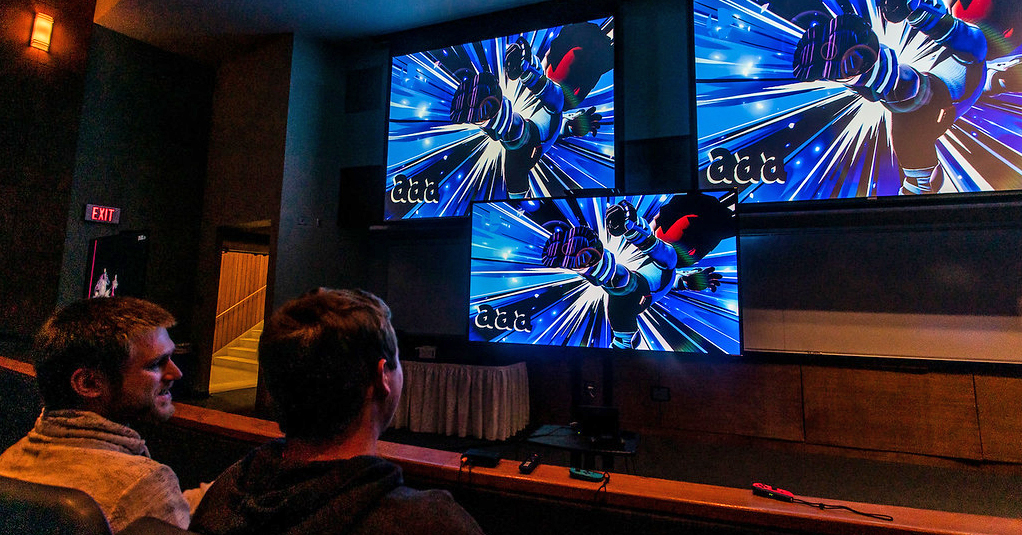More than “just a game”: Why esports is a valuable addition to higher education
Having grown up playing video games almost my entire life, I have always had a deep-rooted love for them – so much so that they became the focus of my academic research, and a big component of my teaching. In my several years of experience teaching gaming-related courses and now helping to develop Emmanuel College’s esports team, I am accustomed to parents asking, “So is my kid just going to school to play video games while they’re in school?”
Schools throughout the U.S., at both the high school and college level, are launching competitive teams and even esports academic curricula. Some schools have begun offering scholarships to students to complete on their collegiate esports team, just like traditional athletic programs have done for decades. Getting your college paid for in exchange for playing video games sounds like a pretty good idea. But esports offers students even more in the way of a potential future in a rapidly growing global industry.
Yet, there’s still a lot of confusion from those unfamiliar with esports. What is it? And what role does it play in educational settings? What are the job prospects in esports?
In this post, I answer these questions, clarifying the value of gaming and esports programs in higher education.
What is esports, exactly?
Put simply, esports can be understood as organized video game competitions. The core concept of outperforming other players harkens back to the arcade tournaments of 1970s America; however, today’s competitive gaming scene relies on networked computers and consoles that allow for head-to-head multiplayer competition.
Esports has come a long way since arcade tournaments and even the LAN parties of the 1990s. Today, there are professional leagues and teams with salaried rosters, sponsorship deals, and events that routinely sell out some of the world’s biggest venues (Tassi, 2013).
A lot of people hear “esports” and think sports-simulation video games like the FIFA soccer or Madden NFL football franchises. While some of these games do have esports leagues, esports is not restricted to sports-themed video games. The most popular esports games are often first-person shooters or team-based fighting games that emphasize skills such as quick reflexes, hand-eye coordination, precision, strategy, and teamwork.
And people make a living off this?
They do! Esports is a thriving global industry. Global esports revenues eclipsed $1 billion in 2020, up from $950 million in 2019. Projections suggest global revenue will hit $1.6 billion by 2023 (Newzoo, 2020).
Esports is a complex network of many different actors. Just like with traditional sports, there are professional, salaried players with a coaching staff and general manager. Professional teams belong to leagues, which are run by esports organizations that specialize in organizing and managing tournaments. Sometimes this is a joint-effort with a developers and publishers who produced the game being played.
There are corporate sponsors for nearly facet of esports – the teams, the tournaments, the leagues – and media deals. While traditional sports networks like ESPN have demonstrated increased interested in broadcasting esports (especially in the wake of COVID-19), esports draws most of its online audience from live-streaming platforms like Amazon-owned Twitch.tv. Approximately two-thirds of all global esports revenue stems from sponsorship and media deals (Newzoo, 2020).
As with any broadcasted event, there are production crews consisting of roles like camera operators, audio technicians, stage-hands and lighting technicians, and producers. Esports even has their own version of play-by-play announcers, known in the esports world as “shoutcasters.”
One of the amazing things about esports is that there are so many different entry points into the industry. The majority of my students do not intend to become professional players, but just by playing on a team or studying the industry in class, they become attuned to all the working parts of this massive industry that I summarized above. You don’t have to be a player or a game developer to have a career in the industry; there are so many different entry points!

What sort of skills do students gain from studying/playing esports?
Because esports is so intertwined with technology, students are given a lot of opportunity to develop skills that are in high-demand in today’s technology-driven industries, both within and beyond the esports industry.
I teach a course on the global games industry, in which students learn about the production and marketing of video games (esports titles included), the legal and ethical issues surrounding digital games technology, and the physiological, psychological, and cultural impacts of gaming. Many of my students have gone to work in either the games industry or computing industry, armed with applicable knowledge about interactive media and society. I have also taught a course on live-streaming and esports, in which students get hands-on experience in developing and running their own live-streams, while also learning about the relationships between the streaming and esports industries.
Outside of the classroom, gaming and esports clubs and events provide students with more hands-on learning opportunities. Students learn to organize and run tournaments or live-streaming events from the ground-up, from figuring out the logistics of networking the computers and consoles, to planning and managing a full-scale event. In the past, my students have organized live broadcasts of 24-hour gaming marathons for charity, with proceeds benefitting the local children’s hospital.
I am a huge advocate of student-led projects, so when I have worked with students on these events in the past, the students are the ones really running the show. I tend to step back and take on an advisory role, making sure students are meeting deadlines and paying attention to logistics. What I love about it is it gives the students a sense of ownership over what they are doing – they get really invested and take pride in it because the outcome is a direct result of their passion and hard work.
Being able to write in their cover letter that they have organized an esports tournament or did production for a live-stream is so valuable if a student is looking to get into the industry. Even just competing as part of a collegiate team gives them insight into the industry and can help them connect with professional esports organizations who might be looking to hire new talent.
For those who are not set on the esports industry, many of the skills they gain from esports courses and campus organizations transfer to other industries. A lot of esports students go into broadcast, social media management, and content creation.
In short, esports has a lot to offer students, while also being a fun way to spend your free time. Take it from a life-long gamer.



 About Insights
About Insights
 About Emmanuel
About Emmanuel